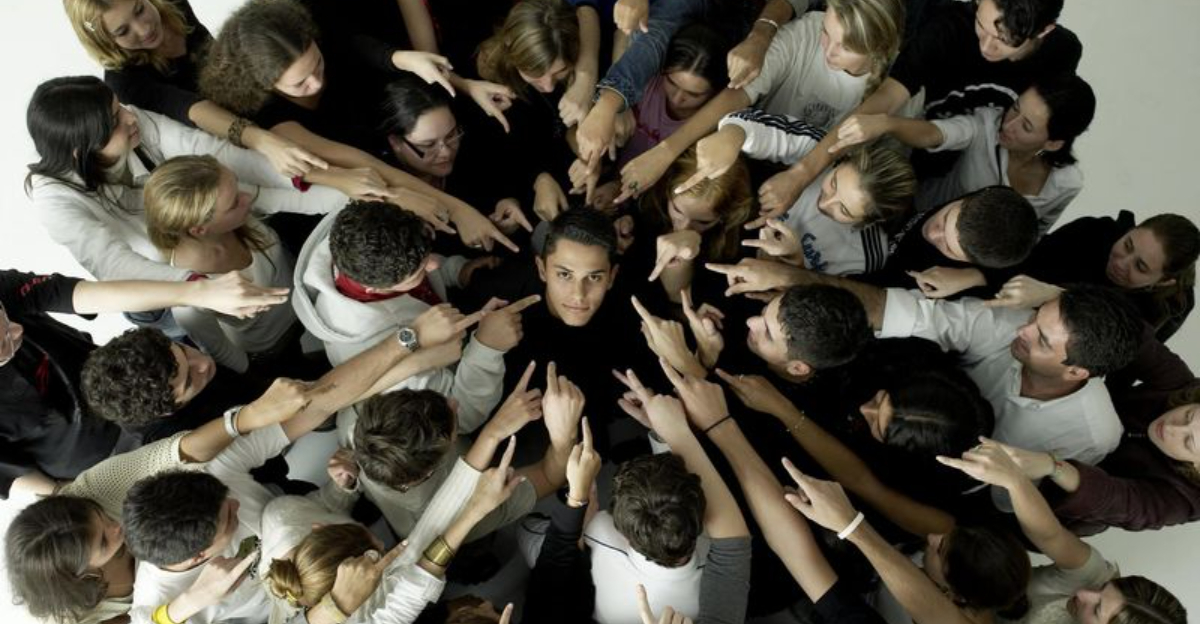18 Subtle Signs Of A Not-So-Great Person
We’ve all been there. One minute you’re thinking this person might actually be solid, and the next you’re side-eyeing your phone like: “Did they really just say that?” It’s that weird gut-check moment where something feels off, but you can’t quite put your finger on it.
The charm is there, the smiles are smooth, but under the surface? Whew. Red flags dressed up as personality quirks.
To be clear — this isn’t about being paranoid or walking around with a magnifying glass looking for flaws. It’s about staying woke to the quiet signs—the energy shifts, the micro-manipulations, the vibes that don’t lie even when they do.So if you’re tired of second-guessing yourself or excusing sketchy behavior, this one’s for you — 18 signs that someone might not be the solid, stand-up person they pretend to be.
1. Overly Competitive Nature

Ever been around someone who turns everything into a competition? It’s unsettling. Imagine playing a friendly game of cards, but it suddenly feels like the Olympic finals. This isn’t just about wanting to win — it’s about needing to prove superiority, always!
The math goes: their insecurities = overshadowing others. They find it hard to celebrate someone else’s success without making it about themselves. Did you ever have a colleague who can’t congratulate you without subtly mentioning their own achievements? Then you know.
Being around someone who’s overly competitive can drain the joy out of simple pleasures. And why do that to yourself? If you ask me, it’s not worth it.
2. Constant Need for Validation

“Did you like my article so far? How is my intro? Are you glad you started to read this?” Ha-ha-ha. Sorry but not sorry. This one is my personal favorite sign. I run like heck from this kind of person. You should too. It’s life draining!
Someone who constantly fishes for compliments — like they have a bottomless well of need that no amount of praise can fill.
I had (notice the past tense!) a friend who repeatedly asked if their new haircut looks good. Every hair-stylist appointment! It doesn’t matter how many affirmations you give — they’ll still seek more. It’s a deeper insecurity that can be hard to manage in a relationship. Well, for me anyhow.
You might find your conversations reduced to mere boosts for their self-esteem, rather than meaningful exchanges. Over time, the weight of their neediness can leave you emotionally drained.
3. Lack of Empathy

You know that cold and mechanical conversations? Barely, right. Because we tend to remember emotions inside conversations, and when someone lacks it, it’s not so memorable. Empathy is the glue of human connection. When you share a heartfelt story, only to be met with a blank stare or a dismissive shrug? Yikes!
Those people fail to read emotional cues. It’s difficult for them to engage in meaningful interactions. They might listen to your words, but your feelings go unheard. It’s as if they have a dialogue with your voice, not your soul.
If you avoid deep conversations with your friends or if you know your emotions are trivialized — you might think about this.
4. Chronic Gossiping
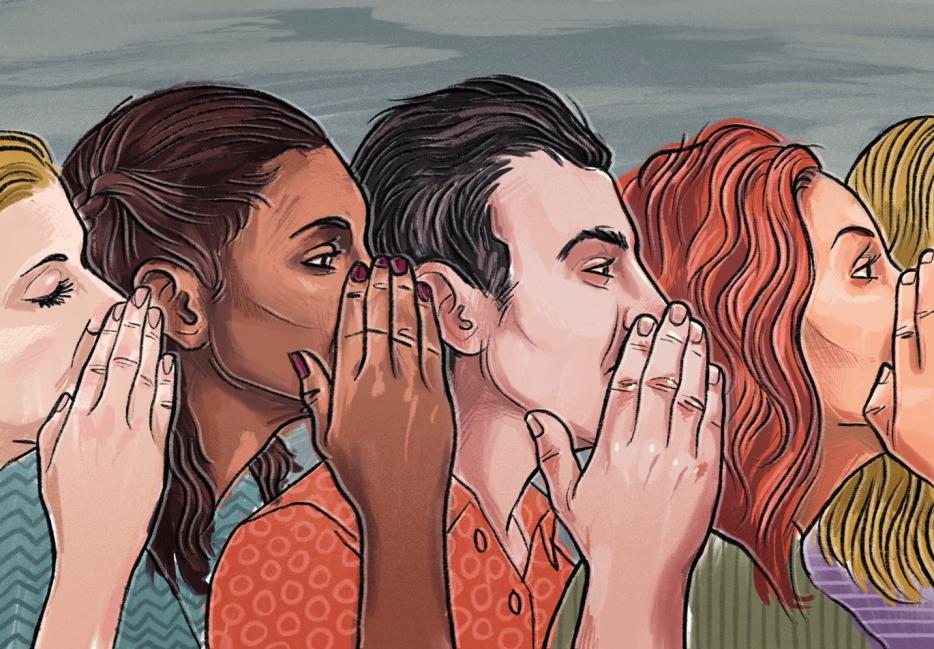
It’s harmless! Well, not quite. And it reveals a shallow character. Picture a social gathering where one person always has the latest scoop, ready to spill secrets with a gleam in their eye. They thrive on stirring the pot, often at the expense of others’ dignity.
It’s an underlying insecurity. It masks a person’s need to feel important or in control. While it might seem entertaining at times, chronic gossiping erodes trust. You start to wonder what they say behind your back.
If you have mixed emotions about a certain person and start suspecting whether you can trust them or not — that’s a red flag in any relationship.
5. Disrespecting Boundaries

Ok, I’m personally affected by this one. So, I’m not gonna be nice. When someone repeatedly crosses your personal boundaries, it screams all the wrong things!! Picture this: someone waltzes into your life like they own the place — no invite, no heads-up, just boom, right in your space.
This is next-level disrespect. It’s not quirky or cute! It’s a complete disregard for your right to simply exist without being invaded. And here’s the kicker: it doesn’t always show up loud and obvious. Sometimes it’s little things. The “harmless” snooping. The backhanded justifications. All the “I didn’t think you’d mind” moments. Well, I mind!
So if someone keeps crossing your lines, know your worth, protect your peace, and don’t be afraid to draw that line with a “bold, glittery marker”. Boundaries aren’t barriers — they’re self-respect in action.
6. Inability to Apologize

How hard is it to say “I’m sorry?” According to some people it is very, very hard. Despite being clearly in the wrong they offer excuses or shift the blame.
It’s as if they believe admitting fault diminishes their worth. When apologies are scarce, it’s harder to move past conflicts. The unresolved issues pile up like bricks, building a wall between you and them.
An inability to apologize isn’t just a flaw — it’s a barrier to genuine connection and growth.
7. Overbearing Criticism

Picture a scenario where every action you take is met with a critical eye. It’s as if they’re constantly on the lookout for flaws, never satisfied with your efforts. By pointing out others’ faults, they feel superior. However, this behavior can be suffocating and leave you doubting yourself.
Let’s be honest: when you have to calculate every move to avoid triggering someone’s insecurity or ego, that’s not a relationship — it’s a tightrope walk. And you weren’t born to dim your light so someone else can feel comfortable in the dark.
Protect your sparkle. If someone can’t handle your shine, maybe they’re just not ready for your light.
8. Playing the Victim
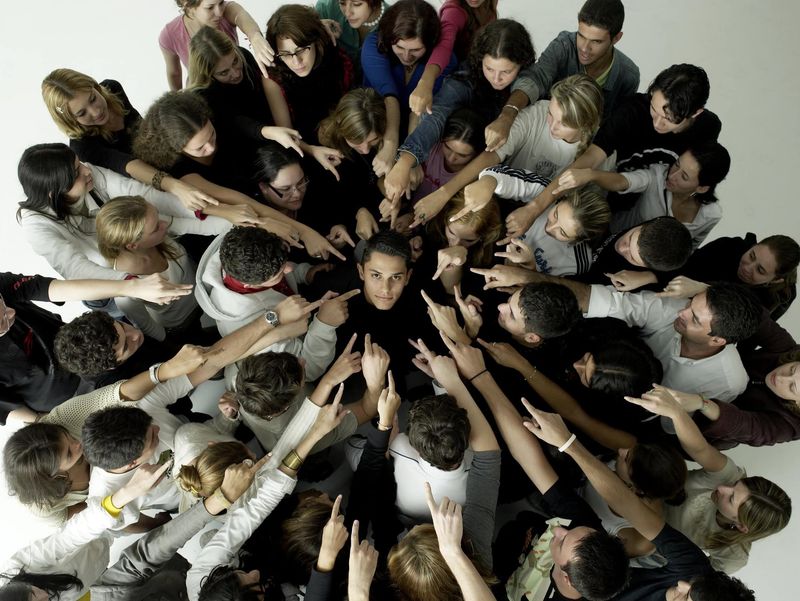
Someone who twists every situation to make themselves appear as the wronged party — it’s a mastermind tactic. What an uncanny ability to evoke sympathy and turn any disagreement into an attack against them. Poor them. Shame on us for trying to have a mature discussion. Can you see my massive eye roll…
It’s a blatant refusal to accept responsibility for their actions. Instead of addressing issues head-on, they deflect and deceive, drawing others into their fabricated reality. Smoke and mirrors, indeed.
It is emotionally draining! The need for endless reassurance places the burden of their happiness on everyone else. Run!
9. Frequent Mood Swings

You know that friend whose demeanor shifts from joy to anger in a heartbeat, so you have to walk on eggshells?
These unpredictable changes are more than just emotional turbulence. They indicate deeper issues that require attention and understanding. However, being around such people is exhausting. And quite frankly, it’s not you who needs to tend to their mood swings.
You’re constantly adjusting your behavior to avoid triggering an outburst, which is mentally draining. Over time, the erratic emotional landscape sets the stage for a massive conflict. That’s why I say: “Thanks, but no thanks.”
10. Manipulative Behavior
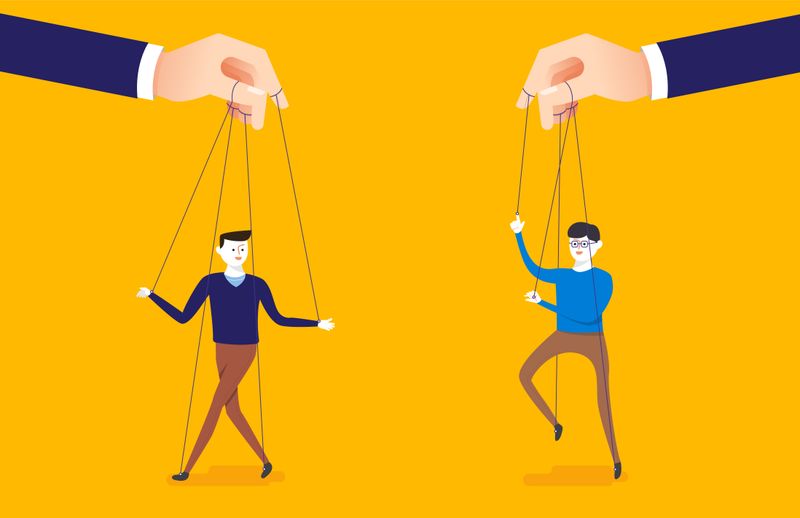
How does this sound — a way to bend others to your will without them realizing it? Evil, possibly? Now, imagine this: someone who always seems to get their way, but not through honest means. They use charm, guilt, or persuasion to influence decisions.
This is cloaked in good intentions or subtle suggestions and makes it hard to spot. But over time, the pattern becomes clear. They have a knack for making you feel responsible for their feelings or actions.
In the long run, this poisons relationships. It’s a sign that cannot be ignored if you value equality and honesty.
11. Habitual Lying

We all know honesty is crucial, yet some seem to master the art of deceit. Someone who lies not just for gain, but out of habit. Their stories often don’t add up, so you question their every word.
Habitual lying isn’t just a bad habit — it’s a full-on trust killer. It’s not just about covering tracks. It’s a serious lack of integrity. Over time, being around someone like that feels like living in a fog where truth is optional and clarity’s always out of reach.
That mental gymnastics gets tiring. Trust doesn’t stand a chance in that environment, and once it’s broken, good luck piecing it back together. Constant dishonesty doesn’t just damage relationships—it erodes them. One lie at a time.
12. Refusal to Listen
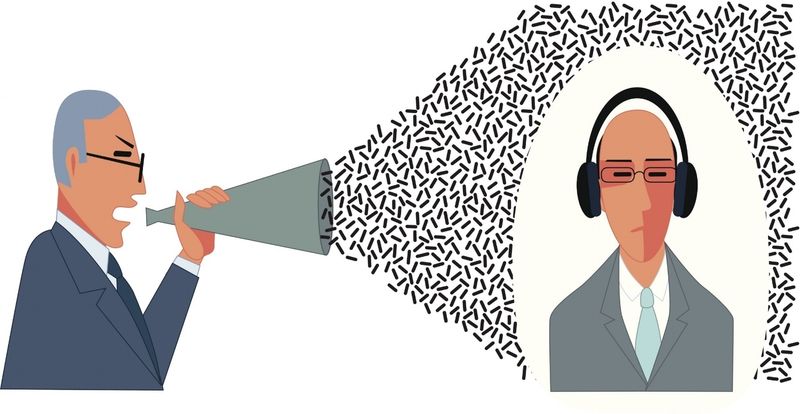
Some people just refuse to open their minds and ears. You remember those conversations where you’re constantly interrupted? Rude, right?
It’s absolutely frustrating. Those who don’t listen believe they have nothing to learn, so they shut the door on others’ perspectives. But here’s the thing — without open, honest dialogue, you’re just two people existing side by side.
In the long run, communication breaks down. You stop bringing things up — not because there’s nothing to say, but because you already know it’s gonna go nowhere. Fast.
13. Self-Centered Attitude

Ever been with someone who turns every conversation back to themselves? It’s as if you’re in a one-man show where everyone else is merely an audience. This self-centeredness isn’t just about arrogance — it’s a deep-seated need for relevance.
You write stories? Oh, great, I wrote an article. Well, sort of, I’m in the middle of it, but it’s gonna be amazing. You need to read it.. Bla, bla, bla… Get the picture? It’s even worse when it’s an important life event, and they still find a way to shift the focus to their own experience.
You start to feel like background noise — always there, rarely seen. Everything’s about them. It’s a major red flag. When someone can’t make space for anyone but themselves, there’s no room for real connection. Hard pass.
14. Lack of Accountability

Responsibility is a foreign concept to them. They never own up to their actions. And always find a scapegoat or excuse.
This can create chaos in relationships and work settings. You are left picking up the pieces and feel manipulated. It’s more than just annoying — it’s infuriating. Every issue becomes your fault, or worse, just swept under the rug like it never happened.
You stop opening up, stop relying on them, because let’s be real — you can’t build anything solid with someone who dodges blame like it’s a sport. Accountability isn’t optional, it’s foundational.
15. Jealousy Disguised as Concern

Jealousy in disguise? Oh, it’s a sneaky one. Picture that “concerned” friend who always has something to say when things start going right for you. They frame it as advice, as looking out — but let’s be honest, it’s giving more shade than support.
Their comments aren’t coming from care, they’re coming from insecurity. Instead of celebrating your wins, they poke holes in them. And slowly, their so-called guidance starts to feel more like a leash than a lifeline.
This kind of jealousy doesn’t shout and if you don’t catch it, it’ll have you second-guessing yourself in moments you should be shining. Real friendships? They cheer loud and want to see you win. If their “help” feels heavy, it might be time to lighten your circle.
16. Emotional Manipulation

Yeah, that’s the silent puppeteer move and it’s toxic. Can you see someone who, mid-argument, breaks into tears or flips the script so hard you’re the one apologizing? Even though they crossed the line? I’ve been there, trust me.
It’s not about expressing emotion — it’s about using it to steer the conversation and keep the upper hand. This is strategy and the goal is to guilt you, distract you, and keep you too emotionally spun out to stand your ground. It’s psychological and before you know it, you’re trying not to “upset” them — again.
When emotions are weaponized, nothing feels safe or clear. And if someone’s pulling strings instead of building connections, it’s time to cut the cord.
17. Entitlement

Have you ever met someone who expects special treatment, believing the world owes them something? Their sense of superiority is palpable!
This attitude stems from a deep-seated belief in one’s own importance and ignoring the contributions and rights of others. Being around an entitled person can be exhausting, as they drain energy and resources without reciprocation.
It affects not only personal relationships but can also create friction in professional environments. It fosters resentment, as their expectations often go unmet, which leads to dissatisfaction.
18. Uncontrolled Temper

A temper left unchecked can be destructive, not just to objects, but to relationships. Have you heard of Vesuvious? Do you know what happened when “he” let his temper erupt? Yeah, you get the joke but this sign is no joke at all.
When someone, at the slightest provocation, erupts into a storm of anger their words are sharp, their actions impulsive, and they leave a trail of emotional wreckage behind.
It makes you unsure of when the next outburst will occur and, in the long term, creates a toxic environment. It’s a major red flag!

